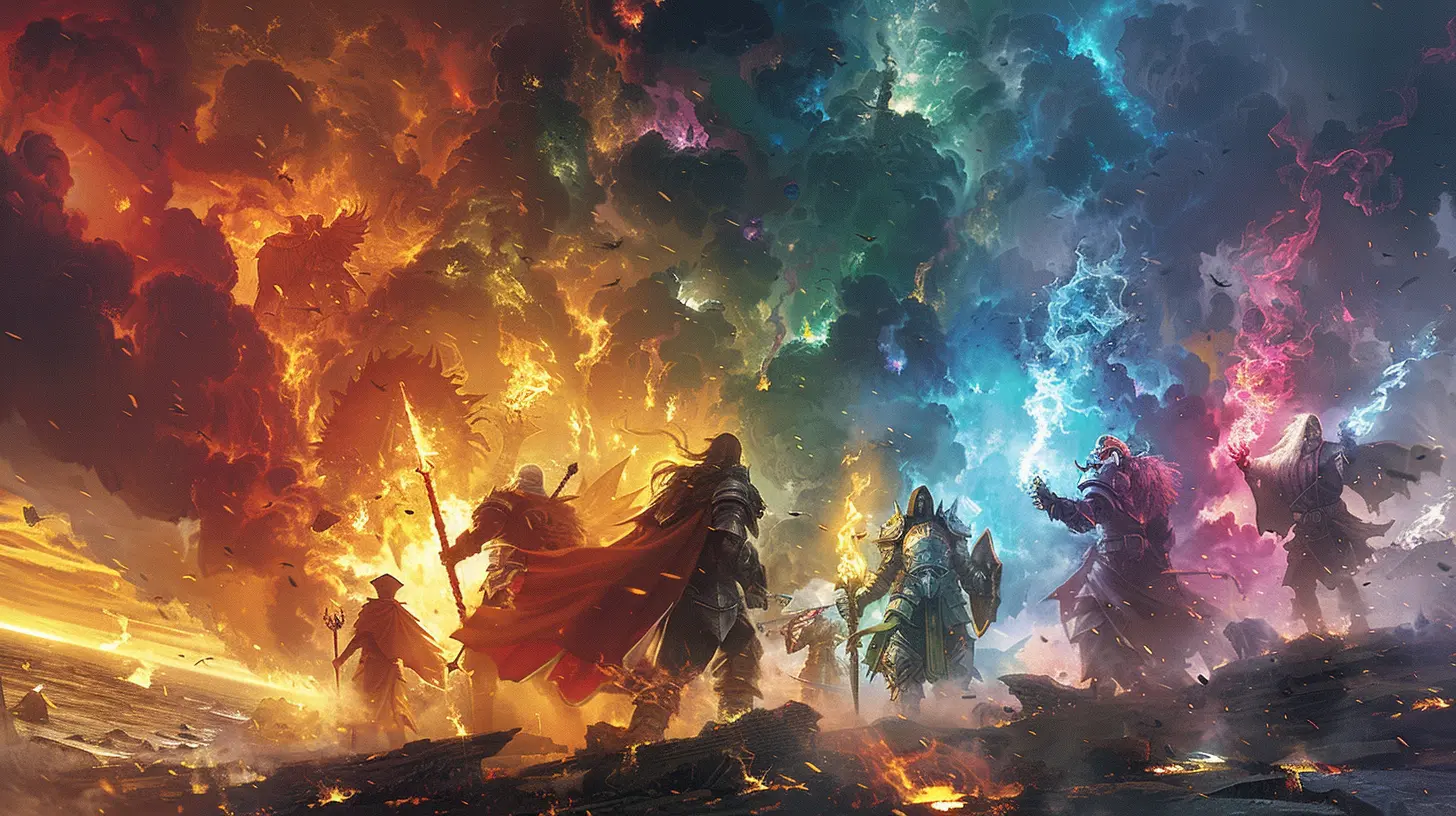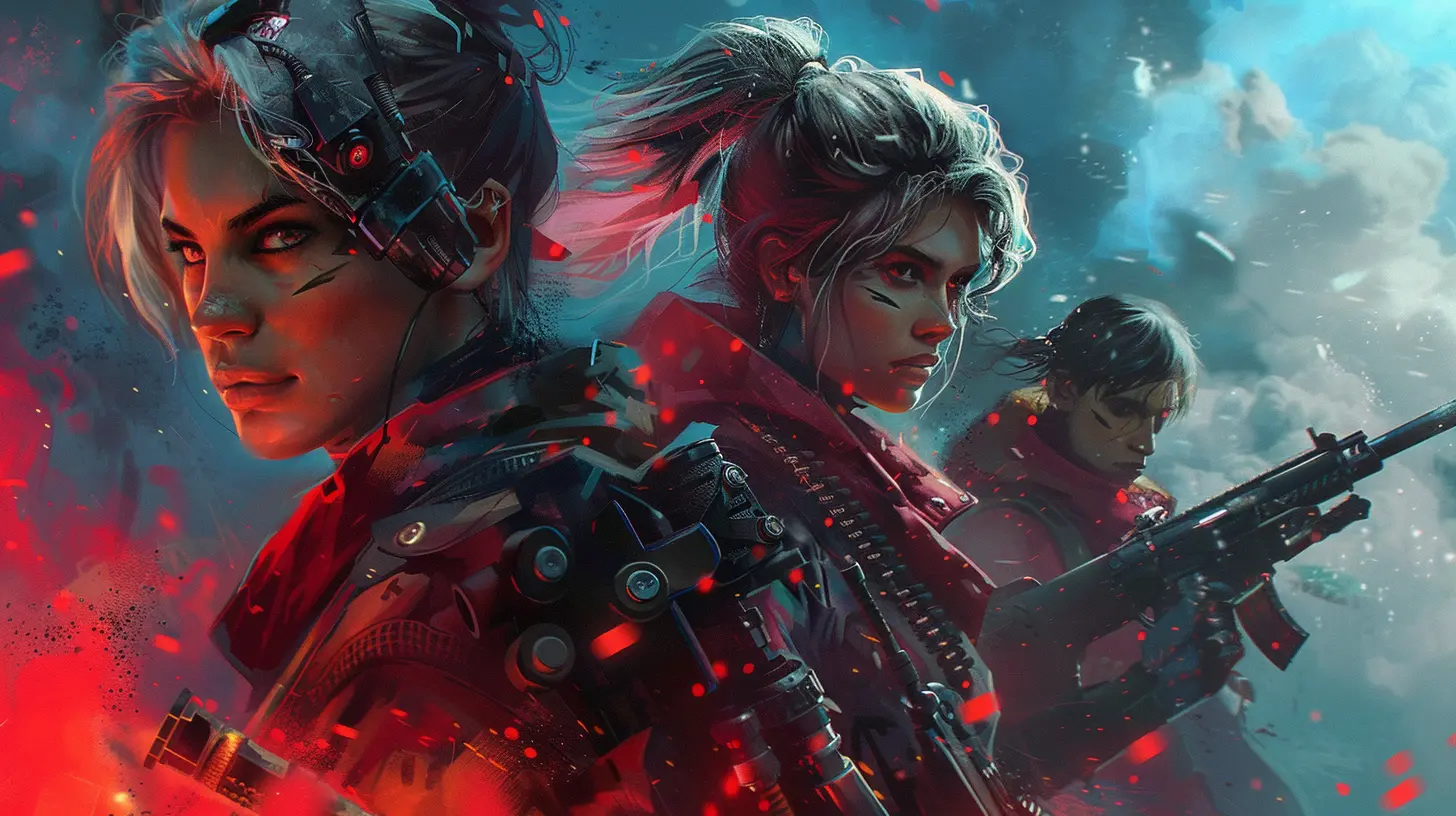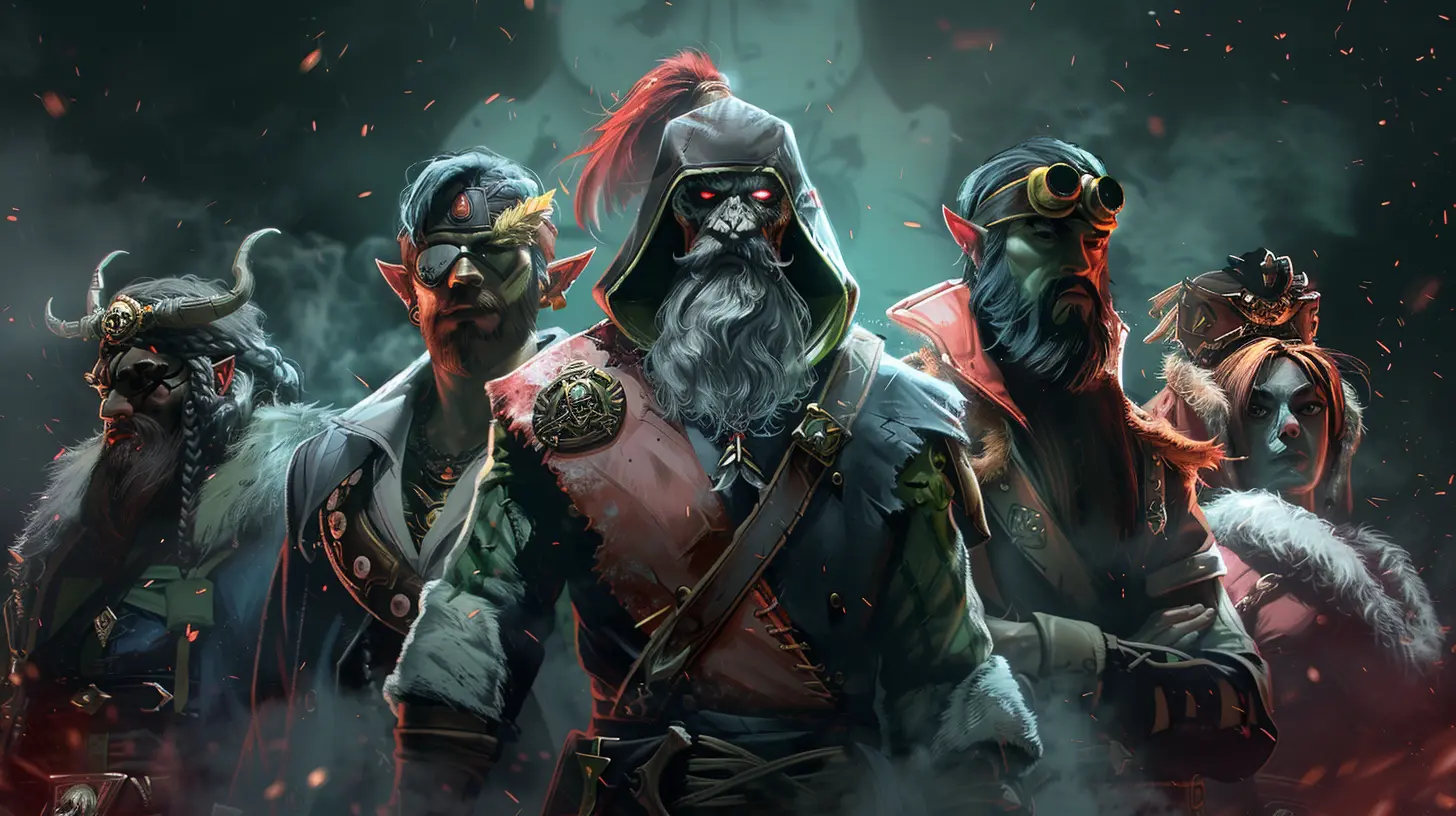The Making of a Dynasty: Esports Teams That Defined Eras
12 July 2025
Let’s be honest—there’s nothing quite like watching sheer dominance in esports. Whether you’re a casual gamer or an esports enthusiast who lives and breathes competitive matches, seeing the rise of a legendary team is like witnessing history in real-time. These teams aren’t just names on jerseys; they’re dynasties, legends, and the blueprint for greatness.
But what exactly makes a team a dynasty? Is it the number of championships they win? Their impact on the meta? Or maybe it’s the legacy they leave behind years after their prime? Today, we’ll dive into the fascinating world of esports dynasties, from the teams that left us in awe to the ones that completely changed the game.
Ready? Grab a drink, settle in, and let’s talk about some teams that really made their mark.
What Defines an Esports Dynasty?
Before we get into specific teams, let’s break down what makes a team an actual dynasty. Spoiler alert: It’s not just about winning titles (although that’s a huge part).1. Sustained Dominance: It’s one thing to win a championship; it’s another to stay on top year after year. Dynasties dominate for extended periods, striking fear into anyone who dares oppose them. Think of it like the final boss in a game—unstoppable until someone finally cracks the code.
2. Impact on the Meta: How a team plays the game can influence how everyone else approaches it. These dynasties don’t just win; they innovate. They set trends, redefine strategies, and force others to adapt.
3. Cultural Relevance: Dynasties transcend the games they dominate. They’re remembered not only for what they’ve done in the server but also for how they’ve inspired fans and even shaped the gaming industry as a whole.
Esports Dynasties That Defined Eras
Now that we’ve set the groundwork, let’s talk about some legendary teams. These aren’t just winners—they’re icons. Their names evoke a mix of respect, admiration, and maybe just a teensy bit of jealousy from rival fans.1. SK Telecom T1 (League of Legends)
If you’ve spent even five minutes in the League of Legends community, you’ve probably heard this name. SK Telecom T1, often shortened to SKT, feels like the Michael Jordan of League esports. Led by the legendary mid-laner Faker (yes, the Faker), SKT dominated the competitive scene for years.From 2013 to 2017, SKT won three World Championships, making them the most successful team in LoL history. It wasn’t just about the titles, though. It was their cool, calculated approach that made them untouchable. Watching SKT in their prime was like watching a chess grandmaster play against amateurs—they were always ten steps ahead.
But, as with all dynasties, their dominance didn’t last forever. Despite their decline, SKT remains a blueprint for what it means to be a dynasty in esports.
2. Astralis (Counter-Strike: Global Offensive)
When talking about CS:GO teams that changed the game, Astralis has to be at the top of the list. Established in 2016, this Danish roster didn’t just succeed—they rewrote the playbook for competitive CS:GO.Astralis became the first team to win four CS:GO Major Championships, three of which were back-to-back. Their team-based focus, utility usage (grenades, smokes—stuff you sometimes forget to use in your own games), and mental fortitude set them apart from the competition. Seriously, their grenade usage is like watching a symphony of destruction in motion.
While the roster has shifted over the years, their legacy is undeniable. Astralis showed that success in esports isn’t just about raw talent—it’s about strategy, preparation, and teamwork.
3. OG (Dota 2)
If you’re a fan of Dota 2, you probably have some strong opinions about OG—and for good reason. They’re the only team in history to win The International (TI) twice, and they did it in back-to-back years (2018 and 2019). That’s no small feat, considering TI has the largest prize pool in all of esports.What made OG special? Their playstyle was bold, unpredictable, and at times, borderline reckless. And their attitude? Just as unique. They played with a “nothing-to-lose” mentality, often turning what seemed like impossible situations into jaw-dropping victories.
OG’s journey is one of perseverance, too. They weren’t always the top dogs. In fact, they climbed from underdog status to unbeatable champions. It’s the kind of story that makes you want to jump into your next ranked game with renewed hope…until you get crushed, of course.
4. Fnatic (Multiple Esports Titles)
Fnatic is basically esports royalty. Whether it’s League of Legends, CS:GO, or any other title they enter, Fnatic always seems to find a way to stay relevant.In League of Legends, they were the first-ever World Champions in 2011, way back when the competitive scene was still finding its footing. In CS:GO, their dominance in the mid-2010s is the stuff of legend. And let’s not forget their success in other games like Dota 2, PUBG, and even Valorant.
Fnatic’s secret sauce? Adaptability. They’ve survived roster changes, meta shifts, and new competition to remain one of the most respected organizations in esports. They’re kind of like a chameleon—always evolving to stay on top.
5. Team Liquid (Multiple Esports Titles)
Few organizations are as versatile as Team Liquid. While many dynasties shine in one game, Liquid has managed to succeed across multiple titles, from StarCraft II and Dota 2 to League of Legends and CS:GO.In StarCraft II, Snute and the rest of TL’s roster consistently made waves. In Dota 2, they won The International 2017. And in League of Legends, they’ve dominated the North American scene in recent years, clinching four consecutive LCS titles.
Liquid’s strength lies in their global presence and team culture. They don’t just focus on one region or one game—they aim to conquer everything. Basically, if esports were Game of Thrones, Team Liquid would be the house trying to rule every kingdom.
What Can We Learn From These Dynasties?
Okay, so maybe we’re not all destined to be esports legends. But the stories of these dynasties offer some pretty cool takeaways.- Consistency Beats Flashiness: Sure, crazy plays make highlight reels, but mastering the basics day in and day out is what builds a legacy.
- Adaptability is Key: Whether it’s a game meta, a roster shakeup, or new competition, staying flexible is crucial.
- Teamwork Makes the Dream Work: Cliché? Totally. True? Absolutely. The best dynasties aren’t just about one star player—they’re about the entire squad working together.
Honorable Mentions
While the teams we’ve mentioned are undoubtedly iconic, there are plenty of other squads worth shouting out. Na’Vi, T1 (Dota 2), Evil Geniuses, and Gambit Esports have all had their moments in the spotlight. And let’s not forget rising stars—who knows who’ll claim the throne next?Wrapping It Up
Esports dynasties aren’t just about titles; they’re about rewriting the rules and inspiring generations of fans. Whether it’s SKT’s dominance in League, Astralis’ clinical precision in CS:GO, or OG’s unpredictable brilliance in Dota 2, each team has left an indelible mark on competitive gaming.So, whether you’re grinding ranked matches at 2 AM or just enjoying the show from the comfort of your couch, remember: every dynasty starts somewhere. Who knows—maybe your favorite team is next?
all images in this post were generated using AI tools
Category:
Esports TeamsAuthor:

Lucy Ross
Discussion
rate this article
2 comments
Vienna Snow
Inspiring read! Celebrating these teams reminds us of passion and perseverance in esports.
December 6, 2025 at 5:32 AM

Lucy Ross
Thank you! I'm glad you found it inspiring—those qualities truly define the essence of esports.
Zephyros Green
This article beautifully captures the essence of what makes esports so special. The legendary teams and players showcased their passion, skill, and teamwork, leaving an indelible mark on gaming culture. Thank you for celebrating their incredible journeys!
July 16, 2025 at 2:24 AM

Lucy Ross
Thank you for your kind words! I'm glad you enjoyed the article and appreciate the dedication of these remarkable teams and players.


